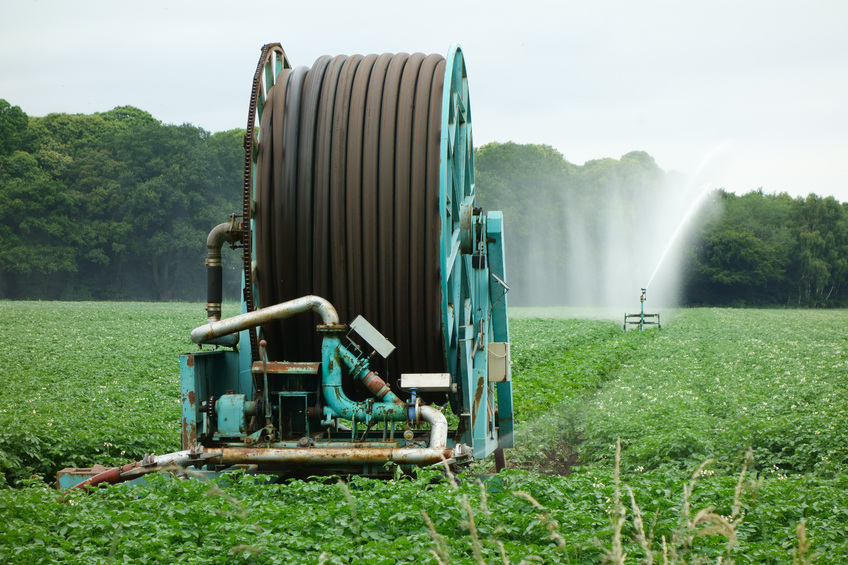Report highlights urgent risks for the UK from climate change

The impacts of climate change are already being felt in the UK and urgent action is needed, concludes a report published today.
In an independent report to Government, ‘UK Climate Change Risk Assessment Evidence Report’, the Committee on Climate Change’s Adaptation Sub-Committee (ASC) sets out the most urgent risks and opportunities arising for the UK from climate change.
The report is the result of more than three years of work involving hundreds of leading scientists – including researchers from the University of Leeds – and experts from the public and private sectors.
Professor Andy Challinor, from the Priestley International Centre for Climate at the University of Leeds, wrote one of the chapters of the report. He said: “Food production shocks triggered by droughts and heatwaves emerged as an important risk. Shocks from around the globe can influence the UK through food price spikes.
“On the plus side, however, we found that it’s possible to make choices about what we eat that benefit both our health and the health of the planet.”
Changes to the UK climate are likely to include periods of too much or too little water, increasing average and extreme temperatures, and rising sea levels. The report concludes that the most urgent risks for the UK resulting from these changes are:
Flooding and coastal change risks to communities, businesses and infrastructure
- Risks to health, wellbeing and productivityfrom high temperatures
- Risk of shortages in the public water supply,and water for agriculture, energy generation and industry, with impacts on freshwater ecology
- Risks to terrestrial, coastal, marine and freshwater ecosystems, soils and biodiversity
- Risks to domestic and international food production and trade
- Risks of new and emerging pests and diseases,and invasive non-native species, affecting people, plants and animals
Professor Piers Forster, Director of the Priestley International Centre for Climate at the University of Leeds, who was not involved in the study, said: “The UK gets off lighter than many countries but this important report confirms that we are already seeing damage to homes, businesses and livelihoods. There are a few opportunities hidden in the mix but the future is clearly one of increased risk that we need to prepare for now.”
The opportunities for the UK from climate change include:
- UK agriculture and forestry may be able to increase productionwith warmer weather and longer growing seasons, if constraints such as water availability and soil fertility are managed.
- There may be economic opportunities for UK businesses from an increase in global demand for adaptation-related goods and services, such as engineering and insurance.
The impact of the recent vote to leave the European Union does not change the overall conclusions of the risk assessment. However, some individual risks may change if EU-derived policies and legislation are withdrawn and not replaced by equivalent or better UK measures. The ASC will assess the implications of the EU referendum in its next statutory report to Parliament on the UK National Adaptation Programme, due to be published in June 2017.
Professor Challinor concluded: “A fragmented world is more at risk. Dealing with these risks requires cross-government and international coordination and this will be more difficult to achieve under Brexit.”
Further information
The Committee on Climate Change (CCC) is the independent statutory body established under the Climate Change Act (2008) to advise the UK Government on setting carbon budgets, and to report to Parliament on progress made in reducing greenhouse gas emissions. The Climate Change Act also established the Adaptation Sub-Committee (ASC) of the CCC to provide advice to the UK and devolved governments on climate change risks and opportunities, and to report to the UK Parliament on progress being made by the National Adaptation Programme.
The Climate Change Act requires the UK Government to compile every five years its assessment of the risks and opportunities arising for the UK from climate change, known as the Climate Change Risk Assessment (CCRA). The ASC’s Evidence Report published today will inform the Government’s second Climate Change Risk Assessment due to be presented to Parliament in January 2017. The first CCRA was presented to Parliament by Government in 2012.
The Synthesis Report ‘UK Climate Change Risk Assessment: priorities for the next five years’, together with the chapters of the full Evidence Report, will be published on the CCC website at 00.01 on 12 July 2016. After that time, it can be accessed by following this link: www.theccc.org.uk/UK-climate-change-risk-asssessment-2017
Professor Andy Challinor is available for interview. Please contact Sarah Reed, Media Relations Officer at the University of Leeds on 0113 343 4196 or email s.j.reed@leeds.ac.uk
Photo: iStock
